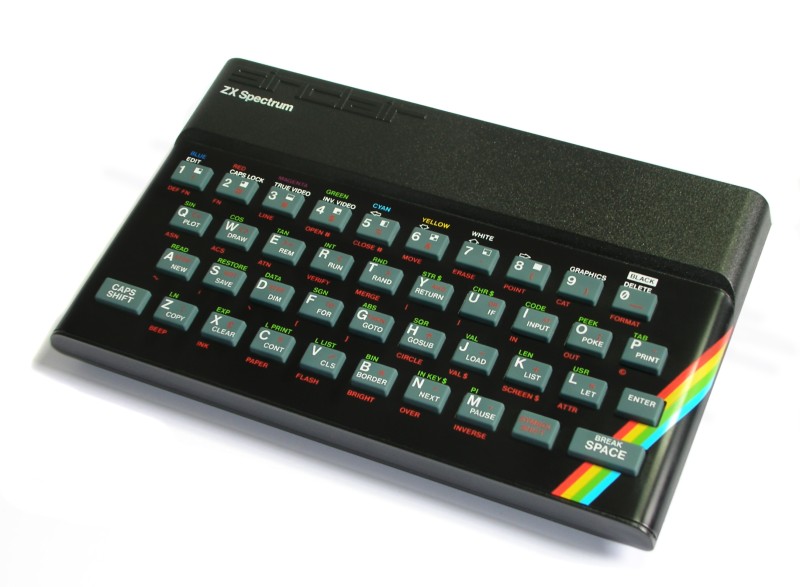My Second Computer - Sinclair ZX Spectrum

Image from Wikipedia page for ZX Spectrum By Bill Bertram - Own work, CC BY-SA 2.5, https://commons.wikimedia.org/w/index.php?curid=170050
I wrote about my first computer last month and it seemed time that I wrote about computer number two. This computer was made by the same company as the first, Sinclair Research. The computer was introduced with a cost of £175 for the 48K memory version, which was much more than was available in the family budget at that time. I had a hard time convincing my parents to get me this computer. In my favor was the fact that I had diligently studied programming (not just playing computer games) on the ZX81 and found a friend who was willing to buy my ZX81 from me.
When the ZX Spectrum (or Speccie as it was known to its devotees) arrived, it seemed magical to not run out of memory when writing simple programs. 48K of built-in memory beats a wobbly 16K RAM Pack any day of the week. I think that it's safe to say that I've never run out of memory since that day. Oh sure, I've had operating systems run out of memory (looking at you early versions of Microsoft Windows), but never for a program that I was writing. Also, it seemed magical to have colors (being in England, they were colours of course) on the screen after the monochromatic world of the ZX81.
The ZX Spectrum also had a "real" keyboard. It wasn't anything like modern keyboards, but it also wasn't a flat panel that you had to carefully press, as it had "real" rubber keys you could press. The rubber keys were fairly soft and the keyboard soon earned itself the nickname of the "dead flesh" keyboard. A bit gross, but fairly accurate of the feel it gave when using it. Another dramatic change was that the machine supported lower-case characters instead of the ALL CAPS approach of the ZX81. Perhaps it's a small thing, but it seemed amazing on first sight.
I loved my ZX Spectrum and continued to learn programming. It was at this time that I discovered the Forth Programming Language and decided that it was much more serious than BASIC and that perhaps I should have bought a Jupiter Ace. Buying any other computer at that time was not an option, so my rise to fame as the world's greatest Forth Programmer was brought to a halt before it started.
The ZX Spectrum used a dedicated video chip, so there was no choosing between FAST or SLOW mode to determine whether the CPU would spend time rendering the screen or would just get on with running your program. This also had the effect of allowing the full power of the CPU to be used for the user's program, giving a four times improvement in speed for the same clock speed of CPU.
Still no disk drive of any sort, so the programs were all saved or loaded through the same basic tape interface that the ZX81 used, only the speed was increased to 1200 baud.
Finally, the ZX Spectrum had a small speaker in the unit, so it could be made to make some awful sounding beeps, but we loved them because the ZX81 was totally mute.